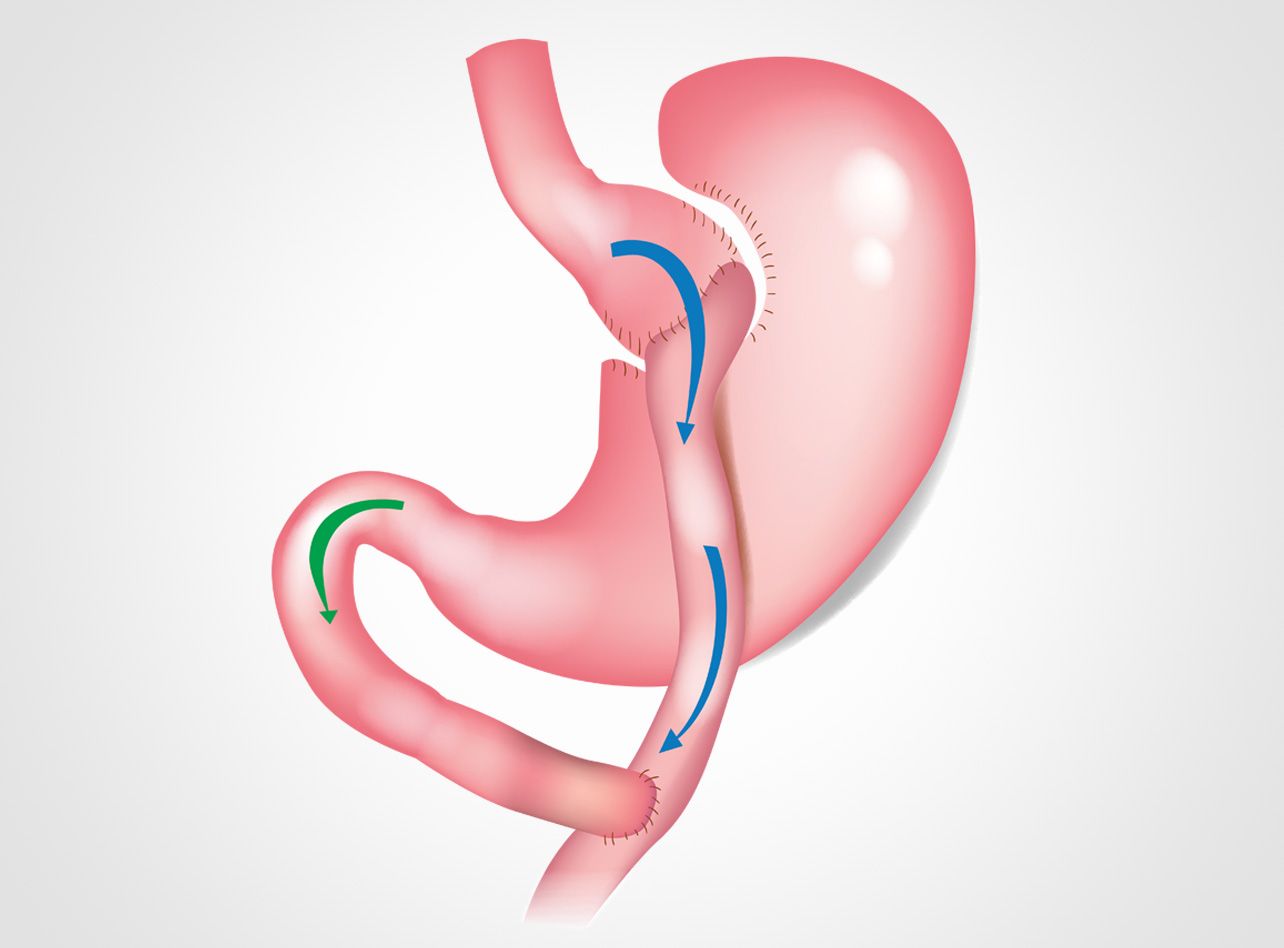
Skip the Waiting Room!
Make an Appointment in Advance
We have up-to-date programmes, contact details and allow you to make appointments online.
Stomach Bypass
Gastric Bypass surgery is one of the most commonly performed surgeries in obesity surgery in the world. This surgery basically provides weight loss to people with two mechanisms. In the surgery, a small stomach volume is created, however, the small stomach is then connected to the small intestine and most of the incoming nutrients pass into the small intestine by bypassing the stomach and most of the small intestine.
Patients take less food because of their small stomachs, and they also take less calories from the food they take because absorption in the intestines is impaired. Less food and less absorption cause weight loss in people.
The main advantages of gastric bypass surgery are rapid weight loss, improvement or control of type 2 diabetes, reduction of hypertension, improvement of sleep apnoea and improvement of other obesity-related health problems.
Gastric bypass surgery is often used in overweight or obese individuals to promote low calorie intake and achieve weight loss. However, there are a number of criteria and evaluation processes to identify suitable candidates for this surgery.
As with any surgical procedure, gastric bypass surgery has its risks. These risks include infection, bleeding, thrombosis, vitamin and mineral deficiencies, and in rare cases anastomotic leakage.
The postoperative period involves changing the patient's diet and lifestyle. For the first few weeks, liquid and pureed foods are consumed, then slowly transition to solid foods. It is also usually recommended to take vitamin and mineral supplements.
Yes, gastric bypass surgery is usually a permanent procedure. However, revision surgeries or other surgical interventions may be required in some cases.
Do you want to get advice from doctors?
Contact Us Now
We will contact you immediately. Within 24 hours we provide immediate feedback.

